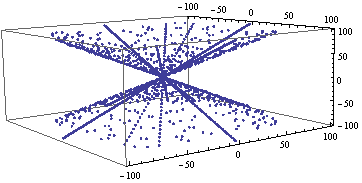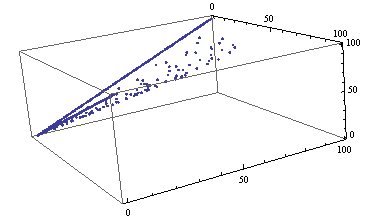Bound the variables from both sides if you want to get explicit results
s = Solve[a^2+b^2==c^2&& -100 < a < 100&& -100 < b < 100&& -100 < c < 100, {a,b,c}, Integers]
(* -> {{a -> -99, b -> 0, c -> -99}, {a -> -98, b -> 0, c -> 98} ... *)
ListPointPlot3D[{a, b, c} /. s]

Or you could reduce the domain to positive integers, taken advantage of the problem being quadratic on all vars:
s = Solve[a^2 + b^2 - c^2 == 0 &&
0 <= a < 100 && 0 <= b < 100 && 0 <= c < 100, {a, b, c}, Integers]
ListPointPlot3D[{a, b, c} /. s]

Edit
And you can verify that
2 Sum[SquaresR[2, i^2], {i, 0, 99}] -1 == (2 Length@# -Count[#, 0]) &@Flatten[{a, b, c} /. s]
(* True *)
This is a useful reading when solving Diophantine equations
